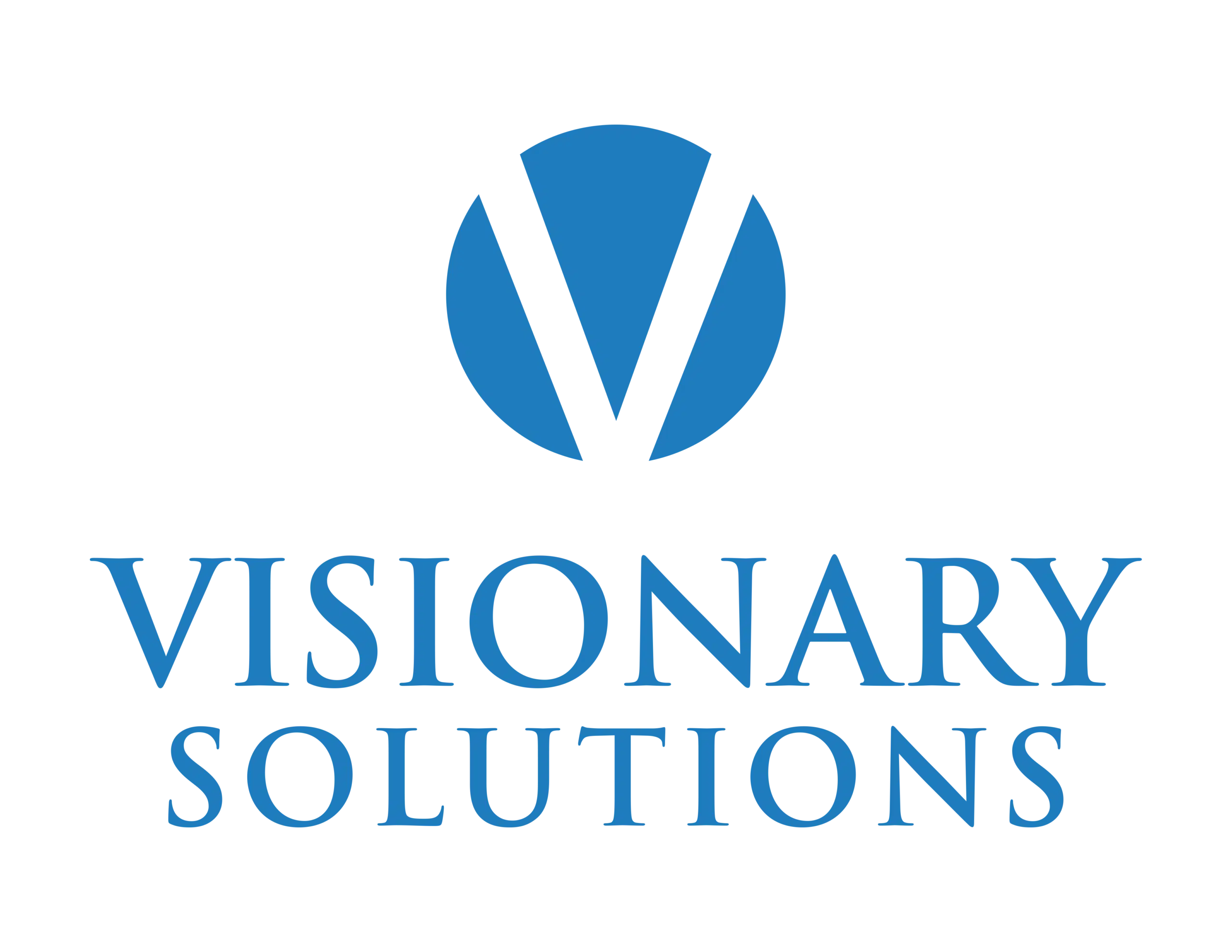In the dynamic landscape of business, the term Lead Qualification Services stands as a pivotal force, steering companies toward unparalleled success.
At the heart of efficient sales and enhanced business performance, it acts as the compass, guiding organizations to prospects that truly matter.
In this Ultimate Guide to Outsourcing it, we delve into the strategic realm of identifying and nurturing potential clients. Brace yourself for insights that will redefine your approach, placing the spotlight on its transformative power in driving sales and propelling business growth.
What is Lead Qualification?
Lead qualification is a pivotal process within the realm of sales and marketing that involves assessing the suitability of prospective customers or leads based on predefined criteria.
This method aims to prioritize and classify leads according to their likelihood of converting into paying customers. It serves as a crucial precursor to the sales process, ensuring that the sales team directs their efforts toward leads with the highest potential for conversion.
In the sales funnel, it plays a central role, acting as a filtering mechanism to separate promising leads from those less likely to make a purchase.
At the initial stages of the customer journey, numerous leads enter the funnel, each at varying levels of readiness to make a buying decision. By employing lead qualification, businesses can tailor their approach to each lead, providing personalized interactions and information that align with the lead’s specific needs and interests.
Its importance extends beyond merely categorizing leads; it significantly influences the entire customer journey and, ultimately, sales outcomes.
By identifying and prioritizing high-quality leads, sales teams can allocate their time and resources more efficiently, focusing on those most likely to convert. This targeted approach enhances the overall effectiveness of the sales process, resulting in increased conversion rates and improved return on investment (ROI).
Lead qualification also contributes to a more streamlined and personalized customer experience. As they progress through the sales funnel, the tailored interactions based on their qualifications help build trust and engagement.
Understanding the specific needs and pain points of leads allows sales teams to deliver relevant content, address concerns, and nurture leads through the buyer’s journey. This personalized approach not only enhances the customer experience but also increases the likelihood of successful conversions.
The Benefits of Outsourcing Lead Qualification Services
Outsourcing lead qualification services brings forth a myriad of benefits that can significantly enhance the efficiency and overall effectiveness of a business.
Cost-Effectiveness: One of the foremost advantages lies in the cost-effectiveness of outsourcing lead qualification.
By leveraging external expertise, firms can avoid the expenses associated with hiring and training an in-house team.
Increased Efficiency: Outsourcing lead qualification services often translates to heightened operational efficiency.
External agencies specializing in this niche possess the experience and tools to swiftly and accurately qualify leads.
Access to Specialized Expertise: External lead qualification services provide access to specialized expertise that may not be readily available in-house.
Better Resource Allocation and Focus: Outsourcing lead qualification allows businesses to reallocate internal resources strategically.
Instead of allocating precious time and effort to the intricacies of lead qualification, internal teams can concentrate on core business activities.
Methods of Qualifying Leads
In the realm of sales qualifying leads, employing effective methods is paramount for ensuring that resources are allocated efficiently and sales efforts are targeted appropriately.
Several methodologies exist, each with its unique approach to evaluating leads.
One widely used framework is BANT (Budget, Authority, Need, Timeline), a comprehensive approach that examines the financial capacity, decision-making authority, specific needs, and purchasing timeline of a potential lead.
This method is advantageous for businesses seeking high-value deals and a clear understanding of a lead’s readiness to make a purchase. However, it may be time-consuming and less suitable for businesses with a shorter sales cycle.
Another notable method is CHAMP (Challenges, Authority, Money, Prioritization), which delves into the challenges a lead faces, their decision-making authority, budget considerations, and the prioritization of their needs.
This method is particularly effective in complex sales scenarios where understanding the challenges a lead encounters is crucial for tailoring a persuasive pitch. However, it may be perceived as more intrusive due to its detailed questioning, requiring finesse in its application.
Prospecting through SPIN (Situation, Problem, Implication, Need-payoff) is a method focusing on understanding the situation and problems faced by a lead, exploring the implications of those issues, and presenting a solution that meets their needs.
This method excels in consultative sales where building rapport and understanding the customer’s perspective are paramount. Nevertheless, this requires a skilled and empathetic sales team capable of navigating nuanced conversations.
When deciding on lead qualification methods, businesses should carefully consider their nature and sales strategy.
BANT might be the ideal choice for businesses with longer sales cycles and high-ticket items, providing a comprehensive evaluation of a lead’s readiness to convert.
On the other hand, CHAMP could be more suitable for businesses dealing with complex products or services, where a deep understanding of challenges is critical.
SPIN, with its focus on customer-centric conversations, is beneficial for businesses aiming to establish long-term relationships based on trust and understanding.
The Lead Qualification Process Explained
In the realm of modern business, efficient lead qualification is the linchpin to successful sales strategies and a streamlined sales funnel.
The lead qualification process is a systematic journey that transforms potential leads into qualified prospects, ensuring that sales efforts are concentrated on individuals or entities with a higher likelihood of conversion.
Here’s a comprehensive step-by-step guide to elucidate this pivotal process:
1. Lead Generation
- Initiate the process by leveraging diverse channels such as content marketing, social media, and paid advertising to attract potential leads.
- Implement lead magnets like whitepapers, webinars, or newsletters to entice individuals to share their contact information.
2. Data Collection
- Gather pertinent information about leads, including demographics, interests, and behavior.
- Utilize customer relationship management (CRM) systems to centralize and manage lead data effectively.
3. Initial Contact
- Establish the first point of contact through personalized emails, social media engagement, or other communication channels.
- Share relevant and valuable content to nurture leads and build rapport.
4. Lead Scoring
- Assign scores based on lead behavior, engagement levels, and demographic information.
- Prioritize leads based on their scores to focus resources on the most promising prospects.
5. Qualification Criteria
- Define specific criteria that determine whether a lead is sales-ready.
- Criteria may include budget considerations, decision-making authority, and alignment with the product or service offering.
6. Sales and Marketing Alignment
- Foster collaboration between sales and marketing teams to ensure a seamless transition of qualified leads.
- Establish clear communication channels to exchange feedback on lead quality and adjust qualification criteria if necessary.
Integration with Sales Strategies
The lead qualification process is integral to the broader sales strategy, acting as the bridge between marketing efforts and the sales team.
As marketing generates leads, the qualification process refines and hones these prospects, presenting the sales team with a curated pool of individuals or businesses more likely to convert.
This alignment ensures that sales representatives can optimize their time and resources by focusing on leads that meet specific criteria, thereby enhancing the overall efficiency and effectiveness of the sales strategy.
Contribution to Sales Funnel Optimization
The lead qualification process plays a pivotal role in optimizing the sales funnel.
By strategically moving leads through stages based on their level of engagement and propensity to buy, businesses can prevent resource wastage on leads unlikely to convert.
The use of flowcharts or diagrams in visualizing this process can provide a clearer understanding for stakeholders, facilitating improved communication between marketing and sales teams.
This optimization, driven by a robust lead qualification process, ultimately leads to a more efficient and revenue-generating sales funnel.
How to Qualify Leads Effectively?
Lead qualification is a critical component of any successful sales strategy, ensuring that resources are focused on prospects most likely to convert into customers.
Industry standards and expert advice emphasize several best practices that businesses can leverage to optimize their processes.
Lead Scoring
Implementing a lead scoring system is foundational to effective lead qualification. This involves assigning values to leads based on various criteria such as demographics, engagement level, and behavior.
Leads with higher scores indicate a stronger likelihood of conversion, allowing sales teams to prioritize their efforts.
Collaborating with marketing teams to define scoring criteria and regularly revisiting and refining the scoring model ensures its relevance and accuracy.
Lead Nurturing
Lead nurturing is an integral part of the qualification process.
It involves engaging and building relationships with leads over time, providing them with relevant content and information to guide them through the sales funnel.
This practice helps maintain a connection with leads who might not be ready to make an immediate purchase but could convert in the future.
Leveraging automated email campaigns, personalized content, and targeted communication ensures consistent and meaningful engagement.
CRM Integration
Integrating lead qualification processes with Customer Relationship Management (CRM) systems is pivotal for seamless and efficient operations.
A well-integrated CRM allows businesses to consolidate lead data, track interactions, and analyze customer behavior in a centralized platform.
This facilitates a holistic view of leads, streamlines communication between sales and marketing teams, and enhances overall lead management.
It also provides valuable insights into the customer journey, enabling businesses to make data-driven decisions.
Actionable Tips for Implementation
- Define Clear Qualification Criteria: Clearly outline the criteria that determine a qualified lead. This could include factors like budget, authority, need, and timing (BANT).
- Regularly Review and Adjust Scoring Models: Stay agile by reviewing and adjusting lead scoring models based on evolving market trends and changes in customer behavior.
- Segment Leads for Personalized Nurturing: Segment leads based on characteristics such as industry, geography, or behavior to tailor nurturing strategies for specific groups.
- Invest in CRM Training: Ensure that your teams are well-versed in utilizing CRM functionalities to maximize the benefits of integration.
- Automate Repetitive Tasks: Use automation tools to streamline repetitive tasks in lead qualification, allowing teams to focus on more complex and strategic aspects.
By incorporating these practices into their lead qualification processes, businesses can not only enhance their efficiency but also increase the likelihood of converting leads into satisfied customers.
The synergy of lead scoring, nurturing, and CRM integration creates a robust framework for businesses to navigate the complexities of the modern sales landscape effectively.
Tools and Technologies for Lead Qualification
In the dynamic landscape of lead qualification, leveraging the right tools and technologies is crucial for efficiency and effectiveness.
Various Customer Relationship Management (CRM) tools, automation software, and analytics platforms have emerged as indispensable assets in this realm.
CRM Tools
Customer Relationship Management tools are the backbone of lead qualification, offering a centralized hub for managing interactions and relationships with potential clients.
Leading examples include Salesforce, renowned for its scalability and customization options, and HubSpot, which excels in user-friendly interfaces.
These platforms allow businesses to track leads throughout the sales funnel, ensuring no opportunity falls through the cracks.
Look for CRM tools that facilitate seamless integration with other software, robust reporting capabilities, and customizable dashboards tailored to your specific needs.
Automation Software
Automation software streamlines repetitive tasks, enabling teams to focus on high-value activities.
Market leaders like Marketo and Pardot excel in automating marketing processes, including lead scoring, nurturing, and segmentation.
These tools use algorithms to analyze lead behavior and engagement, assigning scores that indicate their readiness for conversion.
When choosing automation software, consider features like workflow customization, A/B testing capabilities, and integration with CRM systems.
This ensures a cohesive and automated lead qualification process.
Analytics Platforms
Analytics platforms play a pivotal role in extracting actionable insights from lead data.
Google Analytics and Mixpanel are examples of platforms that offer robust analytics, providing valuable information on user behavior and engagement.
By integrating analytics into lead qualification, businesses gain a deeper understanding of their audience, allowing for more targeted and effective strategies.
Look for tools that offer real-time reporting, advanced segmentation options, and the ability to create custom reports tailored to your lead qualification goals.
Examples of Effective Tool Utilization
Consider a scenario where a B2B company utilizes Salesforce for lead tracking and engagement monitoring.
This CRM tool allows the sales team to customize their outreach based on lead interactions, ensuring a personalized approach.
In another instance, an e-commerce business employs marketing automation through Marketo to score leads based on website interactions. This helps in prioritizing leads and tailoring marketing efforts to different segments.
Ultimately, the choice of tools should align with the unique needs and goals of the business.
Whether it’s the customization features of CRM tools, the automation prowess of marketing platforms, or the analytical depth of reporting tools, a strategic combination can supercharge the lead qualification process.
As businesses continue to evolve, staying abreast of emerging technologies and adopting those that best suit their context is paramount for staying ahead in the competitive realm of lead qualification.
Challenges in Lead Qualification and How to Overcome Them
Navigating this landscape can be a complex journey for businesses, marked by various challenges that often hinder the smooth progression of the sales funnel.
One prevalent hurdle is the issue of data quality. Inaccurate or incomplete data can significantly impede the lead qualification process, leading to misguided efforts and wasted resources.
An anonymous expert in the field emphasizes the critical need for regular data cleansing and validation procedures. They suggest implementing automated tools to maintain data accuracy, ensuring that the information used for qualification is reliable and up-to-date.
Another common challenge arises from the lack of alignment between sales and marketing teams. When these departments operate in silos, the result is often a disjointed approach to lead qualification.
To tackle this, a seasoned professional, who wishes to remain unnamed, recommends fostering open communication and collaboration between the two teams.
Regular joint meetings, shared goals, and a unified understanding of the ideal customer profile can bridge the gap, fostering a more cohesive strategy in lead qualification.
Additionally, the evolving nature of buyer behavior adds another layer of complexity. Consumers now engage with businesses through multiple touchpoints before making a purchase decision.
This necessitates a nuanced approach to lead qualification. An industry insider underscores the importance of tracking and analyzing these touchpoints.
By leveraging advanced analytics tools, businesses can gain insights into the customer journey, enabling them to tailor their lead qualification strategies based on real-time interactions.
Moreover, the proliferation of digital channels and the abundance of information available online have empowered consumers, making it challenging for businesses to stand out.
To address this, an anonymous marketing strategist recommends implementing personalized and targeted content.
This involves understanding the unique pain points and preferences of potential leads, allowing businesses to deliver content that resonates and positions them as valuable resources.
Conclusion
All in all, this guide has spotlighted the vital role of outsourcing lead qualification for business success.
We’ve delved into the benefits, from resource optimization to increased conversion rates. Effective lead qualification is a linchpin for growth, and outsourcing emerges as a strategic solution.
We encourage readers to explore lead qualification services, leveraging expertise for streamlined operations and heightened efficiency.
Elevate your business by taking this crucial step toward enhanced lead management and sustained success!
FAQs
How do lead qualification services differ from lead generation?
Lead qualification services involve assessing and categorizing leads based on their readiness to make a purchase, while lead generation focuses on acquiring potential leads initially.
What are the best practices for B2B lead qualification?
Best practices for B2B lead qualification include clearly defined criteria, effective communication between marketing and sales teams, and regular refinement of lead scoring parameters.
What are the key metrics to measure the effectiveness of lead qualification services?
Key metrics for assessing lead qualification effectiveness include conversion rates, sales-qualified leads (SQLs), and the overall impact on the sales pipeline.
How does lead scoring work in lead qualification?
Lead scoring assigns values to different actions and characteristics of leads, helping prioritize and identify the most promising prospects for more targeted engagement.




